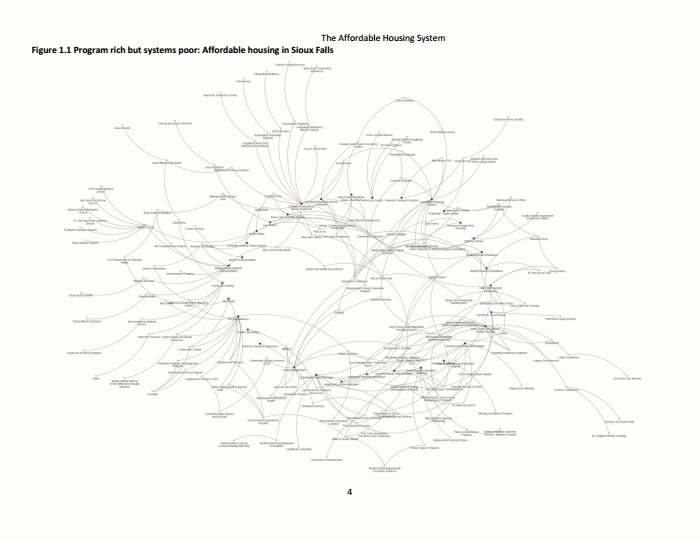SIOUX FALLS, S.D. (KELO) — Sioux Falls is an affordable place to live when compared to other cities in the nation, but for the lowest-income households, it can be hard to find a home and even more difficult to navigate the complex process of finding affordable places to live.
The City of Sioux Falls wants to change that.
In 2016, Sioux Falls Thrive and Augustana University released the Affordable Housing Needs Assesment. Since then, a conversation has been developing in the city to address some of the key findings in the report.
What is affordable when it comes to housing? Click here to see the numbers in Sioux Falls.
The report’s first finding was that there is a large number of programs to help people in need of affordable housing, but that it’s a complex web with no coordination.
Now the City of Sioux Falls and community partners like The Helpline Center want to take action. In a presentation to the city council, city housing manager Chellee Unruh unveiled one of the key goals on Tuesday – establishing a housing clinic by 2021.
“We have identified a gap in services and we have started to formulate what we think is a solution,” Unruh said.
The state of affordable housing in Sioux Falls. Click here to see how millennials are changing the numbers.
Unruh shared a story that inspired Sioux Falls Mayor Paul TenHaken to put accessible housing as one of his focus areas. Before he was mayor, TenHaken met someone at a gas station who needed a ride. While talking to him he learned that he also needed housing.
“Mayor Paul experienced first hand how difficult it is to find a connection and service to housing,” Unruh said.
TenHaken came up with a plan on his own for the man.
“If the housing clinic in our vision would have been in existence today, he would’ve had a place to go with that individual,” Unruh said.
The Housing Clinic would be a partnership between the city, Minnehaha and Lincoln counties and the Helpline Center. It would be powered by people and technology to find housing solutions.
Navigators
One of the key components of the clinic is navigator.
The office would have two to three navigators, who would help people find their way through the housing system.
“It’s just, it’s a massive process to understand housing, to figure out what applications, credit, background and all of that,” Helpline Center vice president of program development Betsy Schuster said. “How can we help people understand that process more? Because it’s a lot to go through.”
Right now, people can call 211 to request help. They connect people to resources in the community. However, a navigator would take it a step further. They would be able to match the person to the right organization or fund.
In 2018, housing calls made up just under 10 percent of all calls to 211 Helpline Center.
“The power of the housing clinic and the vision is to figure out how can we offer the navigation for those individuals that could use a little bit more intense connections – more so than the phone call or text messaging that we do right now,” Schuster said.
They also could help get at the root of the problem.
“What we learn is individuals that may be facing a housing crisis, or any crisis in their life, can only see that crisis,” Schuster said.
Schuster explains it could be a different area of focus needed to help the person, such as career readiness that would then stabilize their housing situation.
The clinic would also have a housing counselor, who would oversee case management and housing education and mediation services to help handle tenant and landlord disputes.
Technology
The clinic would also connect all of the housing resources with the HelpLine Network of Care. This software would allow the 32 existing organizations that help with affordable housing in the community to talk to each other.
It’s a software that’s already been in use for three years at the Helpline Center.
Right now it’s used in different areas, but under the housing clinic, it would create a more efficient process for finding affordable housing.
“Through using technology, how can we help create flow for that client so as they move from place to place they don’t have to retell their story,” Schuster said.
Right now, the clinic is just a goal. There are many steps that need to happen for this to become a reality by 2021, including a proposed 2020 budget for $800,000 from the city.


















